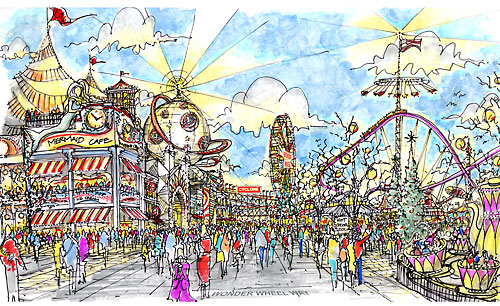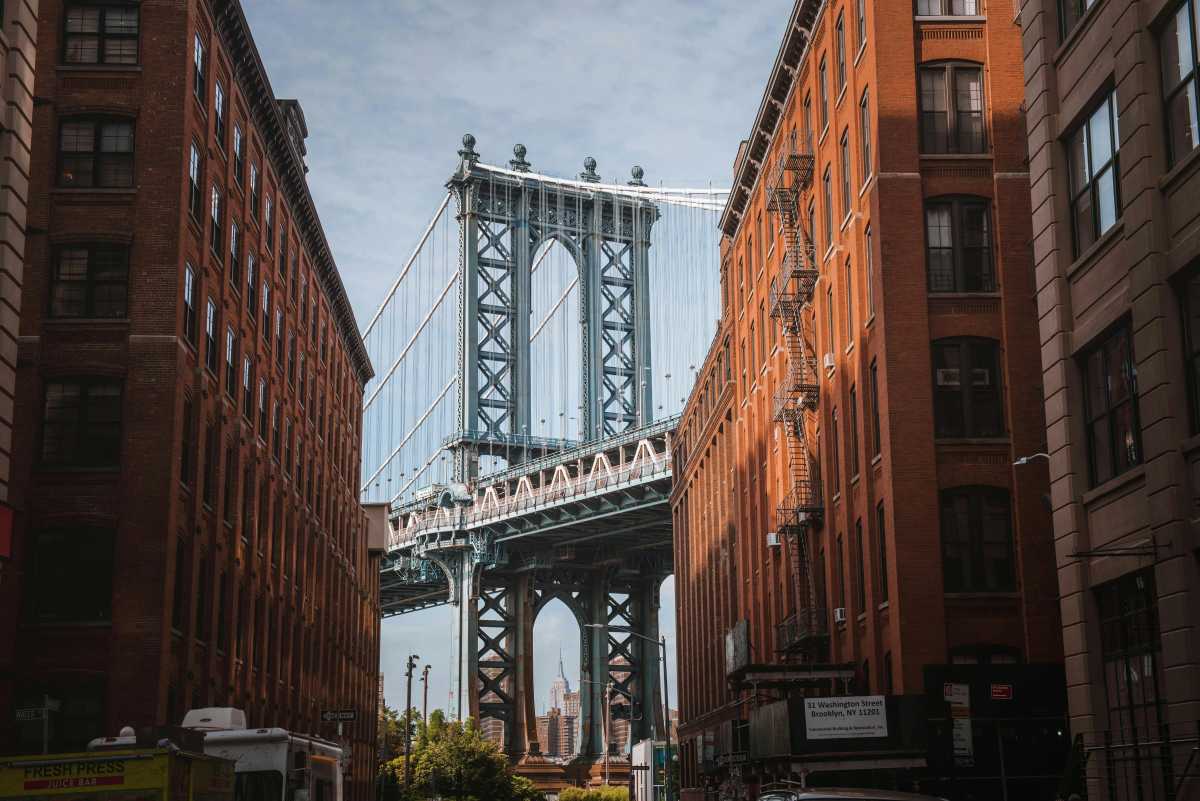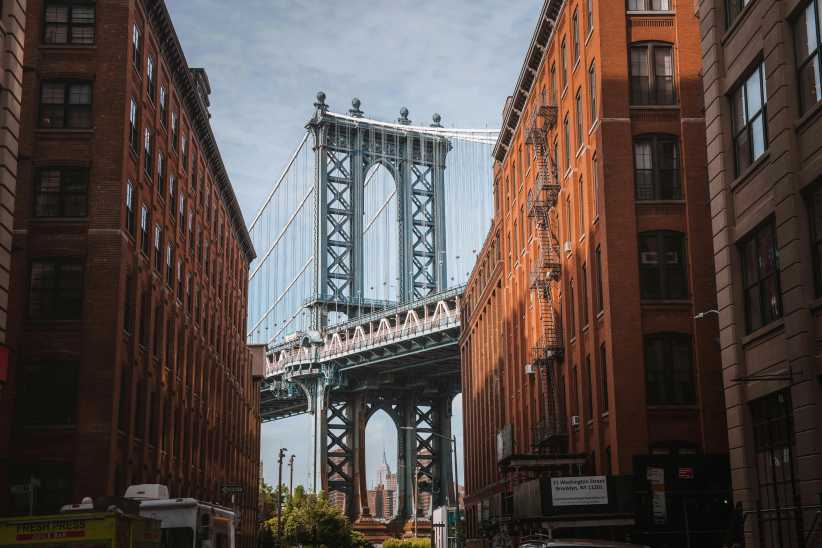Mayor Bloomberg’s hand-picked panel of amusement industry experts is urging the city to find a single operator to run a proposed new theme park for Coney Island, a controversial suggestion that would radically change the nature of the People’s Playground, once the domain of a multitude of independent carnies and ride owners.
“The time is now to identify and select a single industry operator/developer to oversee the development,” the “Coney Island Amusement Advisory Panel” said a statement issued yesterday. The “blue ribbon” commission includes executives from Six Flags, Atlantic City’s Steel Pier, and amusement parks in Wildwood, N.J.
Even though the suggestion for a single, Disney-like operator came from Bloomberg’s own committee, city officials did not fully embrace the idea.
“Whether its one development partner, two development partners or five development partners, the key is to keep the diversity … to keep Coney Island, Coney Island,” said Seth Pinsky, president of the Economic Development Corporation, the city agency spearheading the mayor’s plan to transform Coney Island into a year-round tourist destination of rides, hotels and attractions. The city has waffled on whether it would hire only one company for its proposed 12-acre theme park between the Cyclone roller coaster and Keyspan Park. Recently, the city has tilted towards the idea of protecting the few remaining individual amusement businesses, like the family-owned Deno’s Wonder Wheel park.
Even in its current diminished state, Coney Island is still home to a handful of individually run attractions and concessions near the Boardwalk and there’s a clear preference among the honky-tonk businesspeople to maintain the tradition of multiple entrepreneurs.
“We think the public is best served by a variety of attractions,” said Ken Hochman, a spokesman for Deno’s. “But we feel those concerns can be addressed as the city moves its plans forward.”
Thursday’s statement by the advisory panel came after three days of workshops, tours and “brainstorming sessions” over the future of Coney Island, city officials said. The result was a statement that outlined six other principals besides the “single operator” idea:
• Take advantage of the Coney Island brand: the ocean, the beach, the Boardwalk and even the subway are the key fundamentals of Coney’s future.
• Honor the area’s history (but don’t get too nostalgic): The amusement park at Coney does not have to be a “themed” theme park, the statement said. “It doesn’t need to be ‘Disney-fied,’” the statement said in a bit of irony, given the concurrent support for one park operator.
• Get the core of Coney Island’s amusement district right: Twelve acres, the panel said, is enough room, as long as the core park has enough rides and an “air-in-the-face experience, focusing on speed, thrills and adrenaline.”
• Bring in year-round “urban entertainment”: Beyond the 12-acre core should be 15 acres of indoor attractions, rides, restaurants, and hotels, though the statement did not define the word “urban.” But big-box and mall retail — critical to a rival plan by the neighborhood’s key landowner, Joe Sitt — should not be allowed in this.
• No “pay one price admission”: “Coney Island should continue to be open and family-friendly,” the statement said. “Coney Island should not be compared to, and will not compete with, gated, suburban amusement parks.”
• Do it now: “There is only one chance to get this right,” the statement said. “The city should begin with the installation of a major rollercoaster, followed by additional programming as the infrastructure is built out.”
The time may be now, but before work on a new park could even begin though, the mayor must acquire land from Sitt, who balked at the most recent city offer of $105 million for his 10-1/2 acres and also obtain approval from the City Council for the controversial plan.
Sitt wants to build a $2-billion Vegas-style, 24-7 amusement Xanadu that includes hotels, rides, entertainment venues and, most controversially, retail stores. Coney Island boosters, including Borough President Markowitz, say that retail would be the first step towards killing the spirit of the People’s Playground.
























